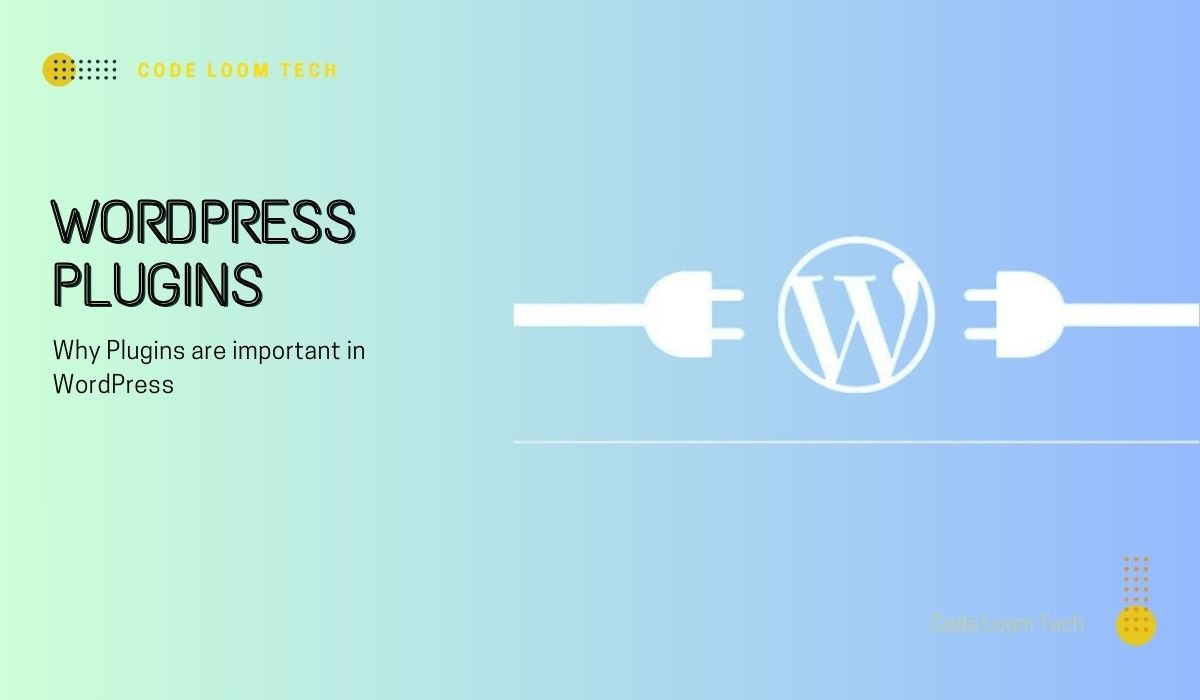We’ve heard a lot about these things called “WordPress plugins.” Why do you keep hearing about them, and what are they? Don’t worry; we’re here to explain WordPress plugins to you and show how they can improve your website.
What are WordPress Plugins?
What exactly are WordPress plugins? In simple words, plugins are like apps for WordPress websites. They’re pieces of software that you can install to add new features and functionality to your site without having to write any code yourself. Plugins are convenient tools that increase the functionality, strength, and adaptability of your website.
Why Use WordPress Plugins?
Now that you know what plugins are, you might be wondering why you should bother using them. Here are a few reasons why plugins are essential for any WordPress website:
Enhance Functionality:
By using plugins, you can easily add new features and functionality to your website. There is a plugin for every purpose, including adding a contact form, making a portfolio, and integrating social media sharing buttons. With thousands of plugins available, the possibilities are endless.
Save Time and Effort:
Instead of spending hours writing code from scratch to implement new features, plugins allow you to achieve the same results in a fraction of the time. With just a few clicks, you can install and activate a plugin, saving you time and effort that can be better spent on other aspects of your website.
Stay Updated:
WordPress plugins are regularly updated by their developers to fix bugs, add new features, and ensure compatibility with the latest version of WordPress. By keeping your plugins up to date, you can ensure that your website remains secure, stable, and performing at its best.
Customize Your Website:
Plugins give you the power to customize your website to suit your unique needs and preferences. Whether you’re building a blog, an e-commerce store, or a portfolio website, plugins allow you to tailor your site to your specific requirements and create a truly personalized online experience for your visitors.
Popular Types of WordPress Plugins
Now that you understand the benefits of using WordPress plugins, let’s take a closer look at some popular types of plugins and what they can do for your website:
Contact Form Plugins:
Contact form plugins allow you to create custom contact forms for your website, making it easy for visitors to get in touch with you. Popular options include Contact Form 7, WPForms, and Gravity Forms.
SEO Plugins:
SEO plugins help you optimize your website for search engines, improve your search engine rankings, and attract more organic traffic. Yoast SEO and All in One SEO Pack are two popular choices for WordPress SEO plugins.
Social Media Plugins:
Social media plugins allow you to integrate social media sharing buttons, follow buttons, and social feeds into your website, making it easy for visitors to connect with you on social platforms. Some popular options include Social Icons, AddToAny, and Social Warfare.
E-commerce Plugins:
E-commerce plugins allow you to turn your WordPress website into a fully functional online store, complete with product listings, shopping carts, and payment gateways. WooCommerce is the most popular e-commerce plugin for WordPress, but other options include Easy Digital Downloads and Shopify.
Security Plugins:
Security plugins help protect your website from hackers, malware, and other security threats. They offer features like malware scanning, firewall protection, and login security. Some popular security plugins include Wordfence, Sucuri Security, and iThemes Security.
Tips for Using WordPress Plugins
While plugins can enhance your website in countless ways, it’s essential to use them wisely to avoid potential pitfalls. Here are a few tips for using WordPress plugins effectively:
Security Plugins:
If you value flexibility and control over your website, WordPress.org offers unparalleled freedom to customize and grow your site.
Choose Quality Plugins:
When selecting plugins for your website, choose reputable plugins from trusted developers. Check the plugin’s ratings, reviews, and update frequency to ensure it’s well-maintained and reliable.
Keep Plugins Updated:
Regularly update your plugins to ensure they remain compatible with the latest version of WordPress and receive essential security patches and bug fixes.
Avoid Plugin Overload:
While plugins can add valuable features to your website, using too many plugins can slow down your site’s performance and increase the risk of conflicts and security vulnerabilities. Be selective and only use plugins that are essential for your site’s functionality.
Test Plugins Before Installing:
Before installing a new plugin on your live website, test it on a staging site or local development environment to ensure it works correctly and doesn’t cause any conflicts with your existing plugins or themes.
Conclusion
And there you have it – a comprehensive guide to WordPress plugins and how they can supercharge your website. From enhancing functionality and saving time to customizing your site and improving security, plugins offer endless possibilities for taking your WordPress website to the next level. So why wait? Start exploring the world of WordPress plugins today and unlock the full potential of your website!


